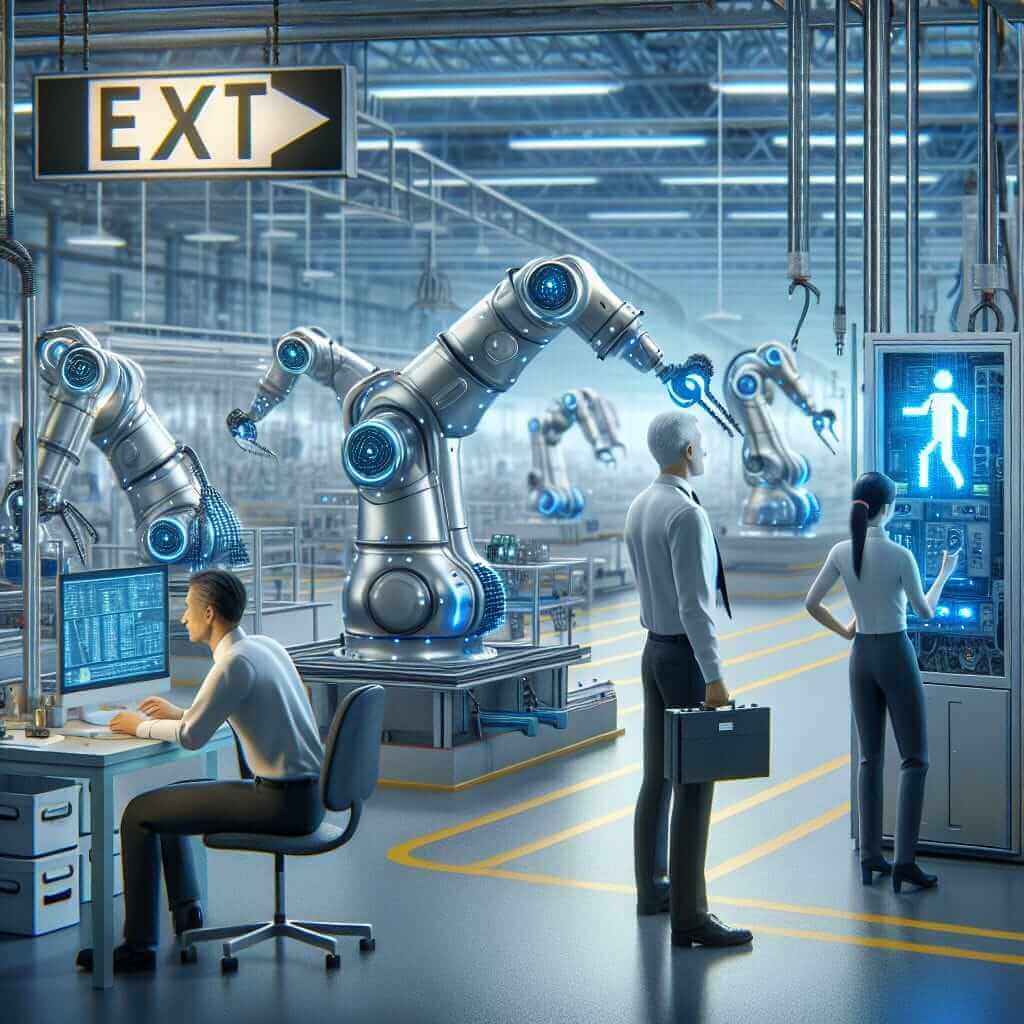The IELTS Reading exam is a critical component of the IELTS test, assessing a candidate’s ability to read and comprehend written English. Topics often span a wide range of subjects, from technology to social issues. One topic that has gained prominence due to its relevance in today’s world is the impact of automation on employment opportunities. This article will delve into this topic, providing a comprehensive reading passage and practice questions to help you prepare effectively.
The Prevalence of Automation in IELTS Reading
Automation and its effects on employment have frequently appeared in past IELTS Reading exams. Given the continuous advancements in technology and its pervasive impact on various industries, it’s highly likely that this topic will reappear in future tests. Understanding its implications can not only prepare you for the IELTS exam but also broaden your knowledge on a vital global issue.
Practice Reading Passage: The Rise of Automation and Employment Opportunities
Reading Passage (Medium Text)
The advent of advanced technologies like artificial intelligence (AI) and robotics has significantly transformed the landscape of employment globally. Automation, which refers to the use of machines and technology to perform tasks previously carried out by humans, is increasingly becoming a norm in various sectors including manufacturing, healthcare, and even customer service.
Historically, automation began with the Industrial Revolution, where machines replaced manual labor in factories. The latest wave of automation, driven by AI, however, is different. It goes beyond simple mechanical tasks to encompass complex decision-making processes. This shift has led to concerns about widespread job displacement and rising unemployment rates. For instance, a study by the McKinsey Global Institute predicts that by 2030, up to 375 million workers worldwide may need to switch occupational categories due to automation.

Despite these concerns, automation also presents opportunities for job creation. As routine tasks become automated, there is a growing demand for jobs that require advanced technical skills and human creativity, such as data analysis, programming, and strategic planning. Furthermore, automation can enhance productivity, leading to economic growth and subsequently creating new job opportunities in emerging industries.
Nevertheless, the transition to an automated workforce is not without its challenges. Workers, particularly those in low-skilled jobs, may find it difficult to adapt to new roles that require different skill sets. This mismatch between existing skills and job requirements emphasizes the need for comprehensive retraining and education programs to equip workers for the jobs of the future.
Governments and organizations globally are recognizing the importance of addressing the implications of automation. Policies focused on education, vocational training, and social safety nets are essential to ensure a smooth transition. In this context, lifelong learning and adaptability become crucial tenets for the workforce to thrive in an increasingly automated world.
Practice Questions
Multiple Choice
-
What is the primary concern associated with the rise of automation?
- A) Increased workload for employees
- B) Job displacement and unemployment
- C) Higher operational costs
- D) Reduced productivity
-
According to the passage, which industry is NOT mentioned as being affected by automation?
- A) Manufacturing
- B) Healthcare
- C) Education
- D) Customer service
Identifying Information (True/False/Not Given)
- Automation began with the Industrial Revolution.
- AI and robotics have made insignificant changes to employment opportunities.
- By 2030, all workers affected by automation will be unemployed.
Matching Headings
- Match the following headings to the correct paragraphs:
- i) Governmental Responses to Automation
- ii) Historical Background of Automation
- iii) Job Creation Through Automation
- iv) The Impact of AI on Employment
Sentence Completion
- According to the McKinsey Global Institute, by 2030, up to ___ million workers may need to change occupational categories.
Answer Keys and Explanations
- B) Job displacement and unemployment – The passage highlights concerns about job displacement and unemployment due to automation.
- C) Education – The passage does not mention the education industry as being affected by automation.
- True – The passage states that automation began with the Industrial Revolution.
- False – The passage indicates significant changes in employment opportunities due to AI and robotics.
- Not Given – The passage indicates some workers may need to switch occupational categories but does not state all affected will be unemployed.
-
ii) Historical Background of Automation – Paragraph 2
iv) The Impact of AI on Employment – Paragraph 3
iii) Job Creation Through Automation – Paragraph 4
i) Governmental Responses to Automation – Paragraph 6 - 375 – The McKinsey Global Institute predicts up to 375 million workers may need to change occupational categories.
Common Mistakes to Avoid
- Misinterpreting the Main Idea: Ensure you understand the central theme of the passage, not just isolated details.
- Overlooking Key Words: Pay attention to words like “predicts,” “concerns,” and “opportunities” that signal important information.
- Falling for Distractors: Ensure your answers directly relate to what is stated in the text.
Vocabulary List
Displacement: (noun) /dɪsˈpleɪsmənt/ The moving of something from its place or position.
Vocational: (adjective) /vəʊˈkeɪʃənəl/ Relating to an occupation or employment.
Tenet: (noun) /ˈtɛnɪt/ A principle or belief, especially one of the main principles of a religion or philosophy.
Grammar Points
Conditional Sentences: Used to discuss potential future outcomes based on a condition.
Example: “If automation continues to advance, many jobs may be displaced.”
Passive Voice: Often used to emphasize the action rather than the subject performing the action.
Example: “Automation has been implemented in various sectors.”
Final Advice for IELTS Reading Preparation
- Practice Regularly: Consistent practice with diverse reading materials will improve your comprehension and speed.
- Enhance Vocabulary: Build your vocabulary to better understand and interpret complex texts.
- Analytical Reading: Focus on analyzing the structure of passages and identifying key ideas quickly.
Good luck with your IELTS preparation! Remember, understanding topics like the rise of automation will not only aid your exam performance but also keep you informed about significant global trends.